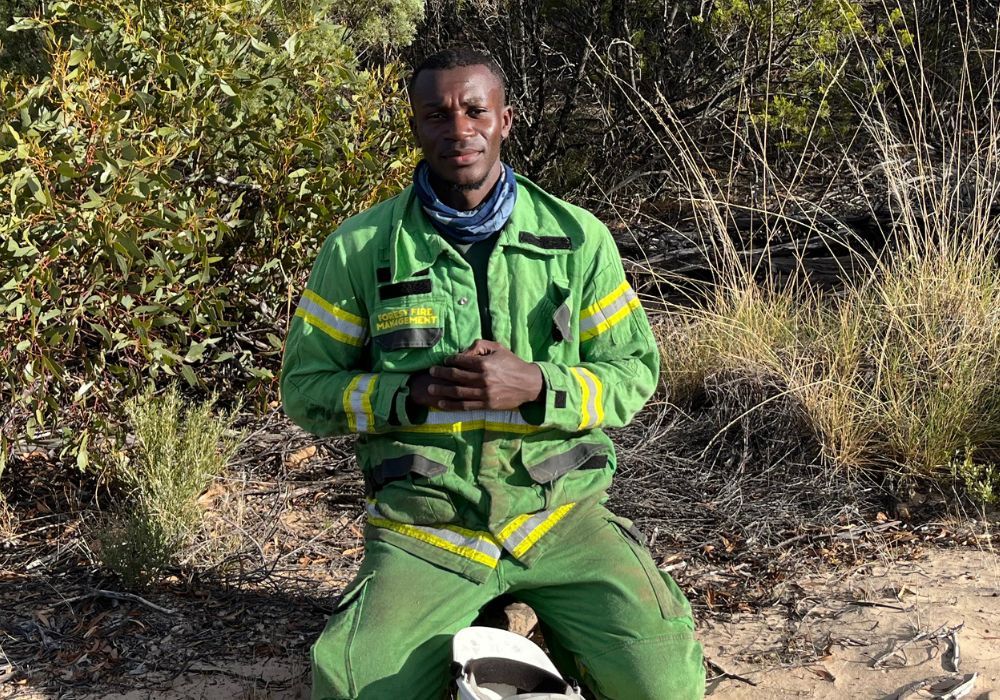Before becoming a project firefighter (PFF), Martin Zigashane completed a pilot Forest and Fire Operations Officers (FFOO) traineeship with the Department of Energy, Environment and Climate Action.
 The traineeship focused on disadvantaged youth from culturally and linguistically diverse backgrounds who completed a Certificate III in Conservation and Land Management while working as FFOOs.
The traineeship focused on disadvantaged youth from culturally and linguistically diverse backgrounds who completed a Certificate III in Conservation and Land Management while working as FFOOs.
While completing his traineeship, Martin heard that Forest Fire Management Victoria (FFMVic) was recruiting project firefighters.
Based at FFMVic’s Mildura depot, Martin originally from the Democratic Republic of Congo said he gained a lot of confidence completing the traineeship.
‘It really prepared me well to become a PFF,’ he said.
All PFFs receive comprehensive initial training and must become accredited general firefighters before heading out into the field.
Martin found the training really good.
‘The training prepares you for everything you do on a daily basis,’ Martin said.
‘It prepares you to always be switched on in everything you are doing; from the initial general firefighter training to specialist training like driving a g-wagen.’
‘And of course, you are always learning from your co-workers every day.’
Martin also enjoyed his team’s fortnightly meetings where the learning continued through discussions about what worked well in their work program and what could be improved.
Helped with the flood response
As soon as Martin and other PFFs based in Mildura completed their initial training they were put to work helping with the response during last year’s flooding emergency, filling sandbags, and helping to build levies to protect the local community.
‘Working on the flood response was very tough,’ Martin said.
‘Filling the sandbags was a very physical and challenging as we didn’t know what was going to happen to the levy bank – if it was going to hold or not.
‘But working as a team, we looked after each other.
Working as a team is something PFFs learn early in their time with FFMVic.
‘Whether it is working on putting out a bushfire, helping with the planned burn program or an emergency, it is important to take instruction from you manager or supervisor,’ Martin said.
‘Safety is our first priority, and looking out for your mates is part of that.’
Martin loved everything about being a PFF, from travelling away from home to help other regions with their planned burn program, working in a team, protecting the community from fire and all the other activities he was called on to do.
Martin said being a PFF is a great job and can be a good career pathway.
‘Becoming a PPF is such a wonderful job if you are physically and mentally fit. You will get all the training and support you need,’ he said.
‘Everything I have learnt while being a PFF will help me in my future career.’